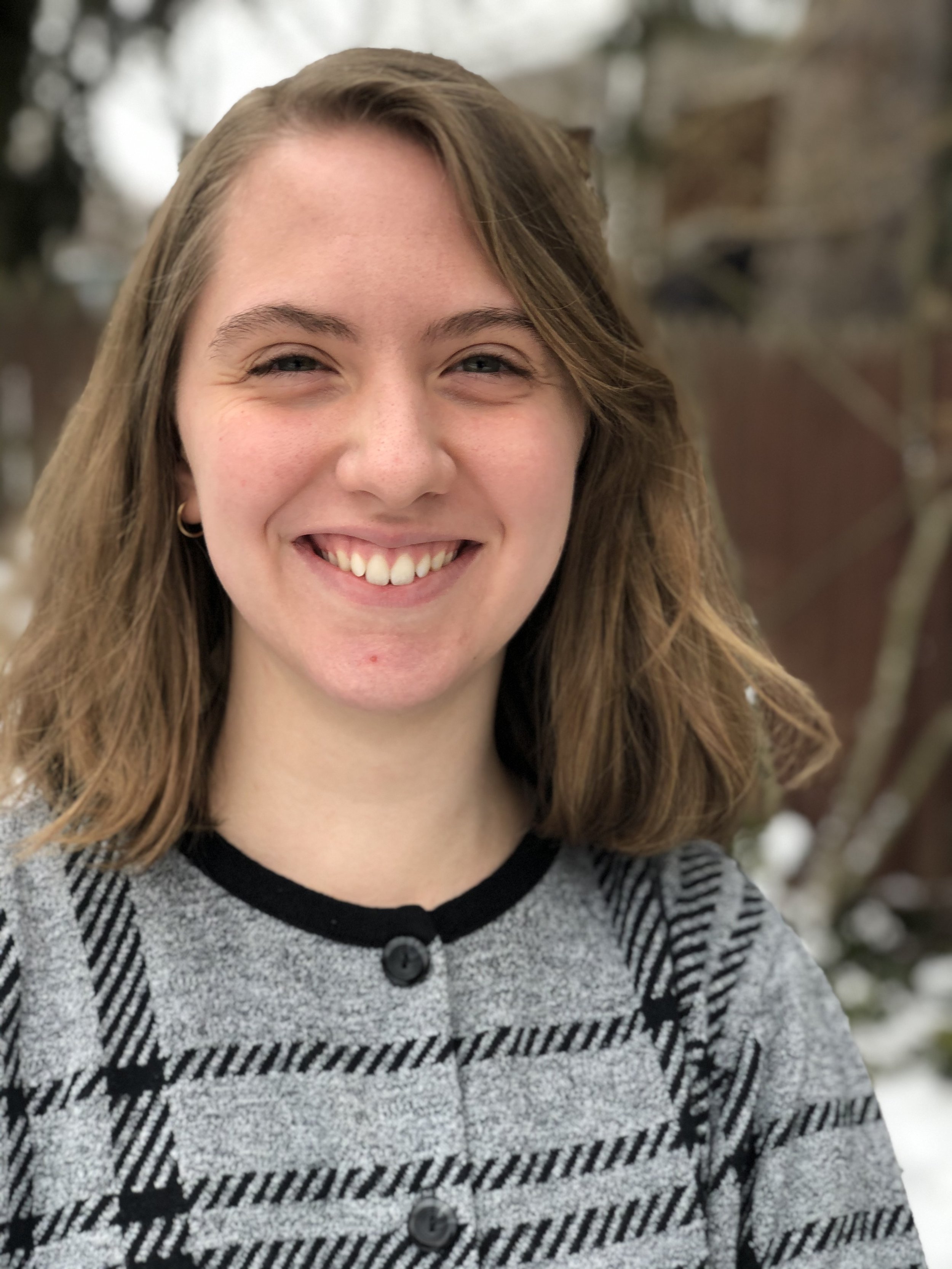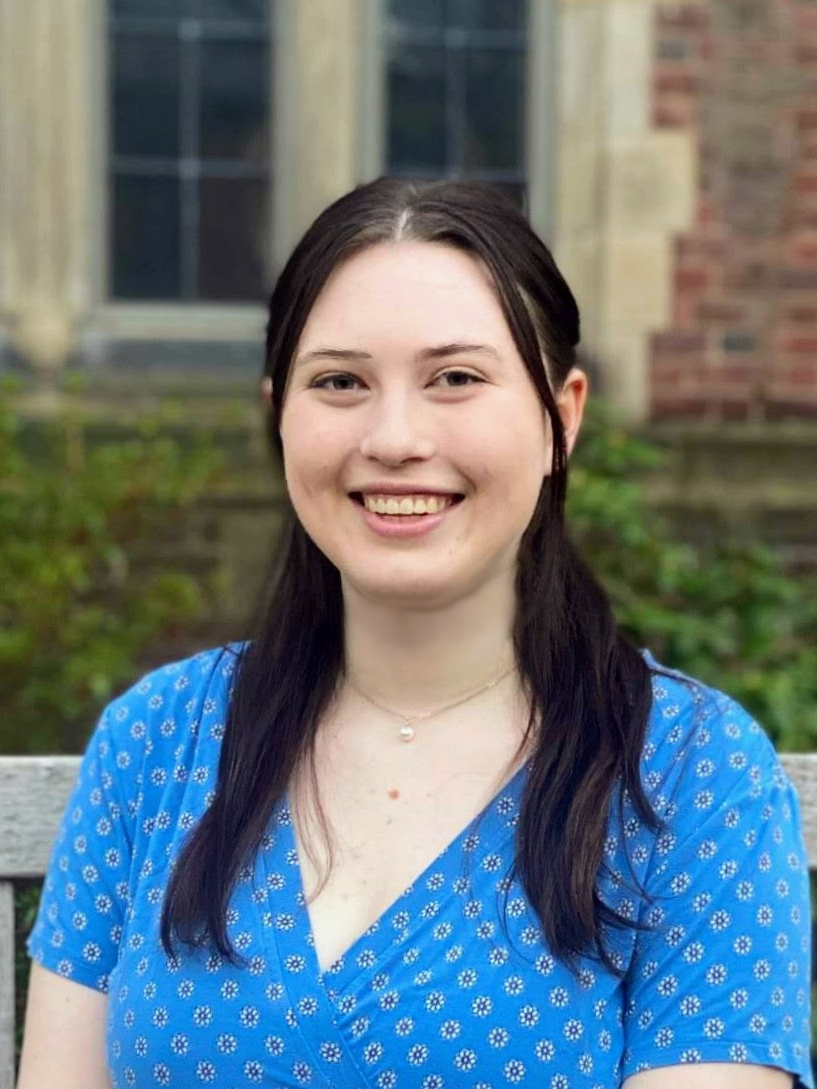- Press Release -
Announcing the 2022 Barry Scholars
We are delighted to announce the 2022 recipients of the John and Daria Barry Scholarship for study in the University of Oxford.
Awarded in recognition of a student’s dedication to the academic vocation and the pursuit of truth, the Barry Scholarship is an academic award like no other. It provides full funding for a minimum of two years of study at the University of Oxford in any discipline, for any degree. The Barry Scholarship is currently the most generous scholarship available for study at the University of Oxford. Barry Scholars receive full funding for tuition, a generous living stipend, a yearly research allowance, a yearly travel allowance, and full reimbursement of the UK’s health surcharge as well as all university and visa application fees. Generously funded by the John and Daria Barry Foundation, the Scholarship is an initiative of the Canterbury Institute.
We invite you to learn about our newest Barry Scholars below, who will each begin at Oxford in fall of 2022. For all inquiries, please email development@canterbury.institute
2022 Barry Scholars
Grace Aquilina will read the MPhil in History of Science, Medicine, and Technology at Magdalen College, Oxford. She graduated summa cum laude from Duquesne University with a BA in English Literature and minors in Philosophy, Medieval and Renaissance Studies, and Women’s and Gender Studies. Her work has focused on the use of cellular metaphors in eugenics rhetoric and on the influence of women’s religiosity in social reform movements. Grace was a Christian Studies Fellow at the Beatrice Institute for three years, where she organized a conference and performance-lecture on the sacred music of jazz pianist Mary Lou Williams. A native of Pittsburgh, Grace enjoys writing essays and exploring historic churches.
Joseph Cobon will read the BPhil in Philosophy at Oriel College, Oxford. He grew up in a small city just outside of Houston Texas called Humble. After graduating from high school there, he attended the University of Texas at Austin to study philosophy and focus adjunctly on religious studies and psychology. He finished with a Bachelor of Arts degree along with university highest honors and departmental philosophy honors. His honors thesis in philosophy put forth an updated version of the so-called fine-tuning argument. The intuition here is that the universe’s ability to support life seems to sensitively and restrictively depend on the fundamental characteristics of the cosmos, as if all of the appropriate life-permitting parameters were ‘fine-tuned’ to bring about life. He assessed the probability of the existence of life and the existence of conscious life under the two explanatory hypotheses of Theism and Naturalism. His interests are highly interdisciplinary, incorporating the wisdom of scientific inquiry (e.g., cosmology, quantum mechanics, and evolutionary biology) and major religious traditions, to bear on questions of mind, explanation, and causation within traditional metaphysics. He is committed to the project of fostering a more consistent and comprehensive world theory within which science, philosophy, and religion are in constant discourse. Aside from his research, he enjoys spending time playing piano, lifting weights, reading Christian apologetics, and meditating.
Rachel Gambee will read the MPhil in Theology at Oriel College, Oxford. Rachel is currently finishing at Dartmouth College where she is majoring in Religion and Middle Eastern Studies. In her senior thesis, Rachel is investigating the intellectual roots of Humanae Vitae. She is particularly interested in political theology and religious nationalism. At Oxford, she hopes to study the role of faith in theories of liberalism and the ethical questions raised by the influence of theology on public institutions. When not working, Rachel enjoys being outdoors hiking, cross-country skiing, or fly fishing.
Lexy Gillette will read the DPhil in Inorganic Chemistry at Worcester College, Oxford. She graduated summa cum laude from Westmont College with a bachelor’s degree in physics and chemistry. Her academic interests mostly concentrate within the materials sciences at the intersection of chemistry and physics, particularly in how the chemical makeup and structure of a material affects its magnetic properties. She has previously worked with superconducting Chevrel Phases and plans to work in the lab of Professor Simon Clarke at Oxford researching similar materials. Outside of the lab, her interests include hiking, reading novels, and dancing.
Ella Lubell will read the BPhil in Philosophy at Christ Church, Oxford. She graduated from Yale University with a BA in Philosophy and calls Norwich, Vermont home. She is interested in studying ancient moral psychology and metaphysics, focusing particularly on how ancient views can respond to contemporary philosophical concerns. She wrote her undergraduate senior essay on moral education in Aristotle and its similarities to scientific and practical education. When she’s not reading ancient Greek texts, you can find Ella singing liturgical music, debating politics, or working on a cross-stitch project.
Taylon Owens will read the MSc in Environmental Change and Management in Oxford. He graduated magna cum laude from Prairie View A&M University, where he studied chemical engineering. Throughout his tenure as a student, he held leadership positions in the Student Government Association, National Society of Black Engineers, and the Eta Gamma Chapter of Alpha Phi Alpha Fraternity Incorporated. Mr. Owens also organized the inaugural TEDxPVAMU event with the theme of Unlock Your Mind. He believes that in order to deconstruct the narratives in place for Black people and other marginalized communities, we must first do our part by educating ourselves and one another. He plans on using his technical background to address the environmental issues plaguing this world. At Oxford, Taylon will study the intersection of climate change, sustainability, and environmental justice with hopes of finding effective solutions to this paradoxical relationship.
Grace Regnier will read the BPhil in Philosophy at Oriel College, Oxford. She graduated summa cum laude with a BA in Philosophy and a BSc in Biology from the University of South Carolina, where she was elected to Phi Beta Kappa and received the Josiah Morse Award for philosophy. Her cross-disciplinary research examined how mechanistic philosophy informs schema formation for emerging concepts in brain aging. She wrote her thesis on perfection, goodness, and final causes in Descartes and Thomas Aquinas. Grace founded and led her campus chapter of the Thomistic Institute, for which she organized reading groups and lectures on how the insights of the Catholic intellectual tradition can help us answer contemporary questions. In her free time, Grace enjoys reading novels, baking desserts, sunny beaches, and exploring the American South which she calls home. Grace is excited to delve into the relationship between metaphysics, natural philosophy, and ethics, focusing especially on the transition from classical to early modern philosophy and the recent revival in virtue ethics.
Peter Varga will read the DPhil in Experimental Psychology at Christ Church, Oxford. Before coming up to Oxford, he received his MSc in Psychological Sciences from William & Mary. He graduated summa cum laude and Phi Beta Kappa as the President’s Award recipient and a University Scholar from The Catholic University of America with a BA in Psychology and minors in Neuroscience, Philosophy, and Theology & Religious Studies, earning additional honors in Classical Philosophy, Theology, and Humanities. Drawing on his background as a classically-trained guitarist and liturgical organist, his DPhil thesis investigates how emotion and higher states (e.g., inspiration) are communicated by composers to listeners via music as well as the implications of this process for cultural transmission and evolution. Championing an interdisciplinary approach to the pursuit of knowledge, his past research has examined the role of aesthetics in science, experiences of higher goods (e.g., unity, truth, goodness, beauty) as indicators of self-transcendent well-being, the function of inspiration and imagination in the creative process, the social and emotional underpinnings of the ‘chills’ response to film and music, the effect of social stress on prospective memory, and differences between terrestrial and lunar psychophysics using virtual reality. Outside of academia, Peter serves as the Development Officer for the Christ Church Music Trust. In his free time, he enjoys singing with the Christ Church and Hertford college choirs and fencing with the University Club.
Nicholas West will read the MSc in Mathematical Modelling and Scientific Computing at Oxford. He graduated summa cum laude from Hillsdale College with a BSc in Applied Mathematics and Physics. In his senior thesis in physics, he explored the use of pulsars to detect gravitational waves. In his research in applied mathematics, he modeled the spread of opioids in the U.S. and the migration of mackerel and herring in the Atlantic Ocean. He has also performed research in signals analysis with the U.S. Department of Defense. He works on campus as a teaching assistant and tutor in Calculus and Linear Algebra. Outside of work and academics, Nicholas enjoys leading weekly meetings for Hillsdale’s Chess Club and volunteering to teach Sunday school at his local church. His favorite pastimes are reading fiction, learning languages, and watching movies with family and friends.
Victoria Xiao will read the MPhil in Theology (New Testament) at St Cross College, Oxford. Her undergraduate was at Dartmouth College, where she majored in philosophy. Her research connects philosophy, theology, and political economy. As a student researcher, she has worked extensively with Dartmouth professors on Augustine, Pseudo-Dionysius, and Thomas Aquinas. In particular, she has written about the theological implications of De Trinitate as a phenomenological text, particularly concerning the Filioque. She has also analyzed Western cultural and political issues from an onto-theological standpoint, juxtaposing Jean-Paul Sartre and Jacques Maritain’s views of existence and their respective moral implications. Moreover, supported by two different Dartmouth grants, Victoria has researched Russian and East European literature and Chinese intellectual history, both of the twentieth century. At Oxford, Victoria hopes to explore the personal, immanent, and transformative dimensions of metaphysics through the study of Scripture and its patristic reception. In her free time, Victoria enjoys playing the piano and a Chinese instrument called Guqin.










